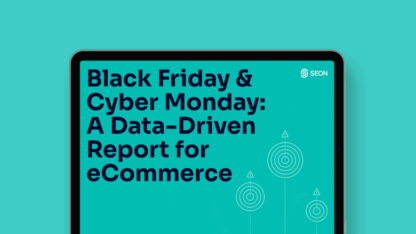Despite the misleading name, friendly fraud is not “friendly.” This deceptive practice costs online retailers over $132 billion annually — a figure that doesn’t account for additional losses from refunded goods and services or operational costs. A recent survey revealed that nearly three-quarters of merchants have experienced friendly fraud, with incidents rising by an average of 18% over the past three years.
Unlike traditional fraud by external bad actors, friendly fraud often originates from legitimate customers through misunderstanding, misuse of return policies or intentional abuse. This makes it harder to detect and even harder to prove. But with the right strategies, businesses can mitigate risks and protect their revenue.
What Is Friendly Fraud?
Friendly fraud occurs when a cardholder disputes a legitimate transaction despite the card not being stolen. Unlike card-not-present (CNP) fraud, where criminals use stolen card data, friendly fraud involves the real cardholder themselves. It can happen in several ways:
- Family fraud: A child or household member uses a saved card to make purchases without the owner’s knowledge.
- First-party fraud: A cardholder forgets a purchase, misunderstands billing details or mistakenly believes a recurring subscription charge is unauthorized.
- Intentional fraud occurs when the cardholder knowingly disputes a valid purchase to secure a refund while keeping the item or service.
Merchants find it complicated to challenge friendly fraud. Distinguishing between accident, misunderstanding or deliberate abuse can be a lengthy, resource-heavy process without clear proof of intent.
Friendly Fraud vs Chargeback Fraud
The terms friendly fraud and chargeback fraud are often used interchangeably, but there are significant differences:
- Friendly fraud: Involves legitimate customers disputing transactions — sometimes by mistake, sometimes deliberately.
- Chargeback fraud: Typically intentional. A cardholder knowingly exploits the chargeback process, aiming to receive goods or services for free.
Both harm merchants by triggering costly disputes, but chargeback fraud is generally more malicious, whereas friendly fraud often blurs the line between fraud and poor customer experience. Understanding these nuances helps merchants refine their fraud prevention strategies.
Five Examples of Friendly Fraud
Friendly fraud comes in many forms. Here are some of the most common examples:
- Accidental friendly fraud occurs when customers forget about purchases or fail to recognize charges on their statements. This is especially common with recurring subscriptions, where shoppers overlook ongoing billing.
- Intentional friendly fraud: Shoppers dispute legitimate transactions to obtain refunds while retaining goods. Some practice double dipping,” requesting both a refund from the merchant and a chargeback from the bank.
- Merchant error: Customers may wrongly assume fraud when billing descriptors are unclear or delivery issues occur. Disputes based on dissatisfaction with service or product quality fall into this category.
- Family fraud occurs when a family member, often a child, makes a purchase using another family member’s payment information without their knowledge. The unaware family member may later dispute the charge, thinking it was fraudulent.
- Refund abuse: Customers request refunds for products or services they have received and continue to use. They exploit lenient return policies, taking advantage of merchants’ willingness to process refunds without returning the item.
Discover how SEON’s frictionless fraud prevention can help you tackle friendly fraud without impacting the shopper journey.
Speak with an expert
Consequences of Friendly Fraud for Your Business
Friendly fraud creates a triple threat for online retailers: financial costs, operational burdens, and reputational risks.
- Chargeback Fees: Merchants pay $15 to $50 in fees for each dispute, regardless of the outcome. With hundreds of disputes, these costs quickly escalate.
- Narrow Timeframes: Merchants have just 45 days to contest a chargeback, and the process heavily favors cardholders without compelling evidence.
- Operational Costs: Businesses must absorb shipping, handling and administrative expenses tied to disputed transactions.
- Reputation & Compliance Risks: High chargeback ratios can trigger warnings from payment processors. If thresholds are breached, merchants risk fines, higher processing fees,or even being placed on industry watchlists like MATCH.
Ultimately, friendly fraud prevention is not just about reducing disputes but protecting long-term profitability and safeguarding payment processing capabilities.
How to Prevent Friendly Fraud
While merchants often start at a disadvantage in disputes, proactive strategies can minimize risks. Effective friendly fraud prevention aligns with broader chargeback and refund fraud prevention practices, emphasizing verifying customer identity and intent.
Key prevention tactics are:
- Identity Verification: Use digital footprint analysis and device-related data to confirm customer identities and intentions and establish a clear connection between the customer and their transaction.
- Comprehensive Record Keeping: Maintain detailed records of transactions and customer interactions; documentation can be invaluable when disputing chargebacks.
- Pattern Monitoring: Monitor suspicious behaviors, such as frequent refund requests from the same customer, which might indicate potential friendly fraud.
- Customer Communication: Provide accessible channels for customers to reach out with concerns before they resort to chargebacks. Clear communication can often resolve issues amicably.
- Refund Policy Adjustments: Consider refining your refund policies to reduce chargeback opportunities. For example, request specific customer evidence or ask for returns in disputes.
By implementing these strategies, businesses can reduce the likelihood of friendly fraud and protect their revenue.
How SEON Helps Combat Friendly Fraud
With advanced technology and a comprehensive approach that detects and prevents fraud at every step of the customer journey, SEON enables merchants to verify identities in real time. Here’s how SEON’s solutions help businesses effectively combat friendly fraud:
- Digital Footprint Analysis & Device Intelligence: Assess customer identities based on online behavior, social and digital profiles and device characteristics.
- Continuous Activity Monitoring & Behavioral Tracking: Monitor all transactions and user activity before purchases to spot behavioral patterns indicative of friendly fraud and recognize repeat offenders and unusual refund requests.
- Customizable Fraud Rules: Set up tailored rules to flag suspicious activities and automate responses based on previously identified fraudulent behaviors.
- Machine Learning-Enhanced Detection: Spot patterns and anomalies the human eye might fail to recognize, and implement machine learning-suggested rules based on your historical data to fine-tune your defense.
In addition, SEON offers a fully automated chargeback management solution designed to maximize revenue recovery. By removing the need for tedious manual work, it enables businesses to reclaim chargebacks faster, reduce operational costs, and minimize lost revenue. This not only frees up valuable resources for growth but also strengthens customer trust and resilience against fraud-related losses.
SEON empowers businesses to take control of chargeback processes and reduce the incidence of friendly fraud. Merchants can enhance their fraud prevention strategies by leveraging real-time data and machine learning insights while maintaining a seamless customer experience.
Discover effective strategies and advanced tools to combat friendly fraud, verify identities, and minimize chargebacks to safeguard your revenue.
Speak with an expert
Frequently Asked Questions
Sadly it’s near on impossible to 100% confirm if friendly fraud as the customer can simply deny any claims.
For merchants, proving friendly fraud is a challenge, because it is a form of first-party fraud, where the fraud is being committed by the legitimate cardholder. You can prove friendly fraud to the bank or any other stakeholder by demonstrating that you have used best safety practices throughout the ordering, payment and fulfillment process.
Machine learning can be trained to detect unusual patterns in purchases and other behavior, so it can flag potential cases of friendly fraud. What’s more, it always improves over time, so it is more likely to do so in the longer run.
You might also be interested in reading about:
- SEON: Guide to Chargeback Fraud: Detection and Prevention
- SEON: Best Fraud Detection Software and Tools in 2025
- SEON: Top Chargeback Management Software Solutions
Learn more about:
Digital Footprint | Browser Fingerprinting | Device Fingerprinting
Sources:
- Qredible: In-App Purchases: Consumer Protection Rights in the UK
- Expert Market: Chargeback Fraud Statistics 2021: Everything You Need to Know About Chargeback Fraud
- Justice – United States Department of Justice: New Orleans Man Sentenced To Six Years in Prison for Charges Related To Credit Card Fraud Conspiracy
- Razorpay: Here’s Why Blacklisting Customers Is Bad for Your E-Commerce Business









